The most common French phrase is "bonjour," which means "hello" or "good morning."
If you're going to study in France, it's important to learn some basic French phrases and words. Going to France and only speaking English can be challenging. French people will expect foreign travellers and students to know at least a few words.
This blog is for international students like you who want to learn the basics of French. We'll provide you with some useful basic French words. We won't focus on grammar, just on giving you useful basic French words and phrases.
Let’s go! – Allons-y!
Basic French phrases for greeting

Listed below are the basic French words and phrases you need to know before you come to France as an international student. Learning these words and phrases is a simple way to show that you care about France and its culture.
- Say “hello” in French
- Bonjour
Bonjour means hello in French. It also means good morning. You can say bonjour in both formal and informal situations. But, in formal situations, you must use bonjour. You can say bonjour any time until about 5:00 PM.
If it's getting late, switch to bonsoir (good evening).
- Say “hi” in French
- Salut!
The most common way to greet someone in French is by saying salut. Salut means both hi and bye.
But remember, this is an informal word and you should only use it with people you know. You can say salut at any time of the day or evening.
- Say “nice to meet you” in French
- Enchanté(e)
This simple word is similar to saying nice to meet you and can make a big difference if you say it sincerely.
For men, it's "Enchanté," and for women, it's "Enchantée" which is spelt with an extra -e. (But don't worry, the pronunciation is the same.)
- Ask “how are you?” in French
- Ça va?
This word means “how are you” in an informal manner.
Remember, these forms are informal. Always pay attention to whether you're using the formal or informal versions!
- Say “goodbye” in French
- Au revoir
To say goodbye in French, use au revoir. You can use this phrase in both formal and informal situations.
When spoken naturally, the French often don't pronounce the 're', so it sounds more like "auvoir."
If you're unsure whether to use au revoir or salut, go with the former, as it's more polite.
However, salut (which means both hi and bye depending on the context) is a better choice when talking to friends, family and people you know well.
- Say “thank you very much” in French
- Merci beaucoup
The word merci means thank you and you can use it in any situation. But you might want to use different words or phrases to express more feelings.
If you want to say, thank you very much, say merci beaucoup.
- Say “you’re welcome” in French
- De rien
After someone thanks you, say de rien to say you're welcome.
Just like merci beaucoup, you can use de rien in all kinds of situations.
- Say “sorry” in French
There are different ways to apologise in French and it can be tricky to know which one to use. But here's a simple guide:
- Say "excusez-moi" (excuse me) to get someone's attention.
- Say "désolé(e)" to say sorry.
- Say "Pardon" to apologise if you bump into someone or if you didn't understand what someone said and need them to repeat.
- Say “yes” or “no” in French
- Oui / non
You might already know "oui" and "non," but they're important to mention here. Basically, oui means yes and non means no in French. Remember to pronounce the "on" in "non" with a nasal sound.
- Say “please” in French
- S’il vous plait
S'il vous plaît means please and you can use it in any situation. There's also an informal version: s'il te plaît.
|
Basic introductory French phrases that international students can use |
|
|
French phrases |
English |
|
Je m’appelle |
My name is |
|
Comment vous appelez-vous? |
What is your name? (Formal) |
|
Comment t’appelles-tu? |
What is your name? (Informal) |
|
Moi c’est… |
I am…. |
|
Je comprends |
I understand |
|
Je ne comprends pas |
I don’t understand |
|
Vous venez d’où? |
Where are you from? |
|
Je viens de |
I am from |
|
Je suis désolé |
I am sorry |
|
Répétez, s’il vous plaît |
Repeat, please |
|
Je sais |
I know |
|
Je ne sais pas |
I don’t know |
|
Parlez-vous anglais? |
Do you speak English? |
|
Un peu |
A little |
|
Je parle un peu français |
I speak a little French |
|
Comment dit-on _____ en français? |
How do you say….in French? |
|
Où est? |
Where is? |
|
Où sont? |
Where are? |
|
Je cherche |
I am looking for |
|
Je suis perdu |
I am lost |
|
Avez-vous? |
Do you have? |
|
Je voudrais |
I would like |
|
Je vous en prie |
You are welcome |
|
Quoi de neuf? |
What’s new? |
|
Allez! |
Let’s go! |
|
J’arrive! |
I am coming! |
|
Combien ça coûte? |
How much does it cost? |
|
Est-ce que vous pouvez m’aider? |
Can you help me? |
|
Tu me manques |
I miss you |
|
Je t’aime |
I love you |
|
As-tu un copain / une copine? |
Do you have a boyfriend/girlfriend? |
|
Je peux t’offrir un verre? |
Can I buy you a drink? |
|
Est-ce qu’on se connaît? |
Do we know each other? |
|
Je peux avoir ton numéro de téléphone? |
Can I have your phone number? |
Looking to study in France as an international student?

École de Management Appliqué (EMA) is a well-known institution that provides various academic degrees, such as bachelor's, master's, MBA, DBA and PhD programmes in applied management. They specialise in finance, law, economics and creative industries. Situated in the heart of Paris, EMA offers these programmes in both French and English languages.
For further details, click here.
Frequently asked questions about French phrases
1. What is the most common French phrase?
2. What is the French phrase that is life?
The French phrase is c'est la vie.
3. What are the basic French words?
The basic French words include greetings like "bonjour" (hello), "merci" (thank you) and "oui" (yes), among others.
4. How do I start basic French?
To start learning basic French, begin with common greetings and simple phrases like "Bonjour" (hello) and "Comment ça va?" (how are you?).
5. Where can I study as an international student in Paris?
You can study with one of the well-known institutions in Paris, EMA. The institution offers numerous programmes in applied management.

 Brochure
Brochure
 Apply Now
Apply Now
 Virtual Tour
Virtual Tour
 Book a campus tour
Book a campus tour